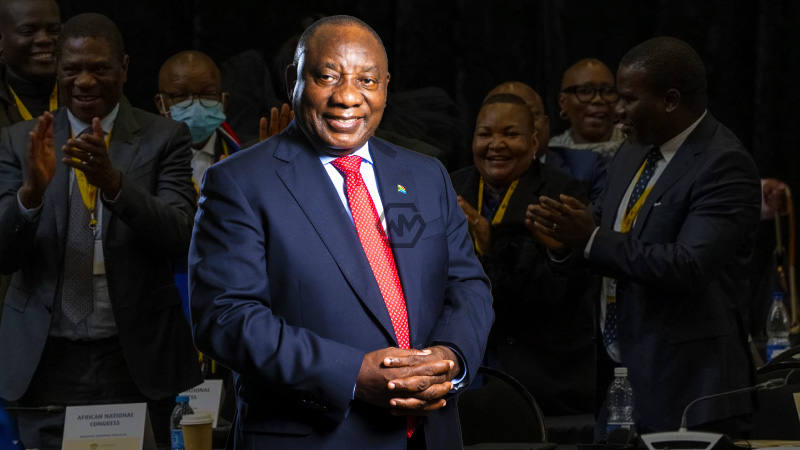- Cyril Ramaphosa re-elected as South African President during the first sitting of the 7th Parliament’s National Assembly.
- The African National Congress (ANC) lost its 30-year majority and formed a coalition government with the main opposition and other parties
- .Out of 339 ballot papers, Ramaphosa received 283 votes, with 12 ballots deemed invalid.
Cyril Ramaphosa has been re-elected as South Africa’s president during the first sitting of the National Assembly in the 7th Parliament. This election followed a significant political shift, as the African National Congress (ANC), which Ramaphosa leads, lost its 30-year majority in the recent national election.
To address the political deadlock, the ANC has formed a coalition government with the main opposition and other parties. Out of 339 ballot papers cast on May 29, Ramaphosa secured 283 votes, with 12 ballots declared invalid.
South African President Cyril Ramaphosa Reelected Amid Historic Coalition Formation
Cyril Ramaphosa has been re-elected as the President of South Africa during the first session of the 7th Parliament’s National Assembly. This victory ensures his second term in office and signifies a pivotal moment in the country’s political landscape.
The African National Congress (ANC), which Ramaphosa leads, experienced a historic shift by losing its 30-year majority in the recent elections. This change has led to a need for new political strategies and alliances to govern effectively.
In response to the loss of its majority, the ANC has entered into a coalition with the main opposition and other parties. This coalition aims to end the political deadlock and promote stability within the government.
During the election on May 29, Ramaphosa received 283 out of 339 votes, with 12 ballots declared invalid. This re-election under a coalition government marks a new chapter in South African politics, focusing on collaboration and shared governance.
Ramaphosa’s re-election under a coalition government marks a transformative period in South African politics, emphasizing the importance of collaboration and shared governance to navigate the country’s future challenges.
“The formation of a coalition government signifies a new era in South African politics, where collaboration and compromise are essential for effective governance,” said a spokesperson from the African National Congress.



